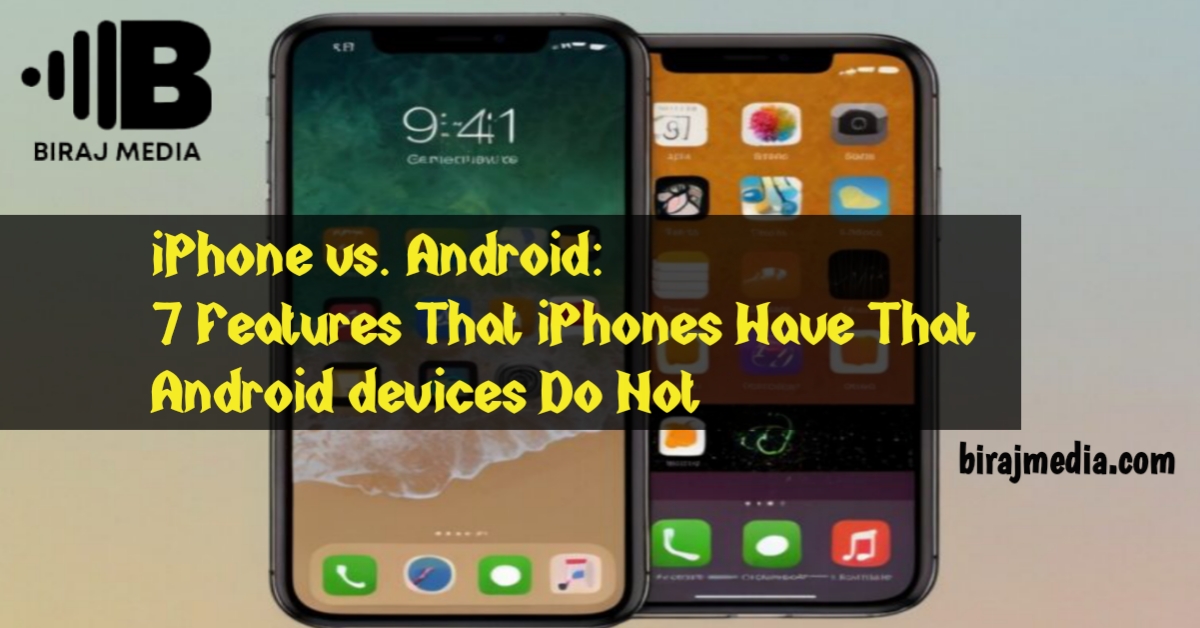
iPhone vs. Android: 7 Features That iPhones Have That Android devices Do Not
Smooth ecosystem integration:
iPhones have no trouble interacting with other Apple products and services, including Apple TV, MacBooks, iPads, and Apple Watch. Handoff, continuity, AirDrop, and Universal Clipboard are just a few of the features that make it simple to move between devices and exchange data. Although Android provides some device integration, it frequently falls short in terms of seamless cross-device capability.
FaceTime and iMessage:
FaceTime and iMessage are built into iPhones and offer premium video calling and messaging features that are only available on Apple products. Among the noteworthy features offered by these apps are Memoji, Animoji, and end-to-end encryption. While there are Android equivalents such as Google Meet and other messaging apps, none of them compare to the capabilities and seamless integration of FaceTime and iMessage as a single, cohesive service.
Software updates that are consistent:
Apple makes sure that all compatible iPhones download upgrades at the same time, ensuring that users get the newest security patches and features as soon as they are made available. This constant update schedule stands in stark contrast to Android, where fragmentation and uneven user experiences result from updates that are frequently delayed due to carrier and manufacturer customizations.
Siri Shortcuts:
This feature fully integrates Siri into iOS by enabling users to build custom voice commands to automate chores and open apps. With customized voice commands, users can simplify their workflows. Although Google Assistant and other voice assistants are available for Android, iPhones offer a higher degree of customization and integration with Siri Shortcuts.
Features that protect user privacy and security:
App Tracking Transparency, which allows users to manage how apps monitor their data, is one example of how Apple prioritizes user privacy and security. Strong security features like Face ID, Touch ID, and hardware-based encryption are also features of iPhones. While Apple places a special emphasis on privacy and ecosystem control, Android has robust security protections as well.
Family Sharing and Screen Time:
Among friends and family, Family Sharing offers a practical means of distributing purchases, subscriptions, and iCloud storage. Parents may set limits and controls for their children’s gadgets with the help of Screen Time, which offers comprehensive insights into device usage. While Android offers comparable functionality, iPhones’ user-friendliness and seamless integration of family sharing and screen time are especially noteworthy.
iCloud and Find My:
iCloud seamlessly integrates backup and cloud storage features into iOS. Apple devices may be found and even tracked when they are offline with the help of the Find My app. Although Google offers comparable services, iCloud and Find My are widely regarded as having deeper integration and more dependability.

Iphone got some pretty legit stuff android doesn’t have
The difference between iphone and Android phone is clear iphone faster than android phone
iPhone is the nearest technology phone it’s the A.I of today’s device